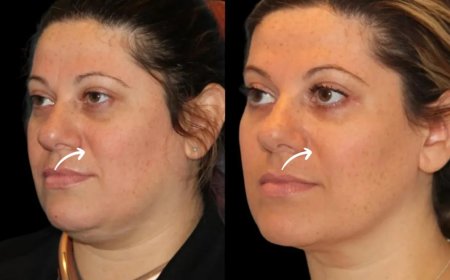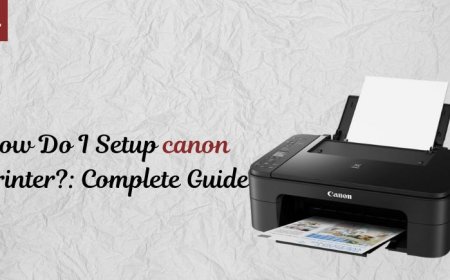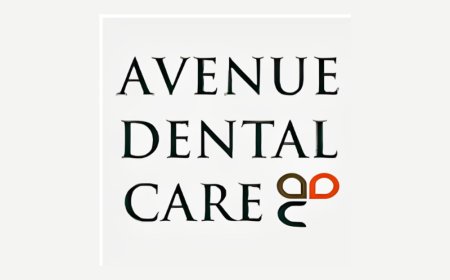How to Choose the Right Pilates Studio in Town

Finding the right Pilates studio can be just as important as choosing a fitness regimen that suits your needs. Whether you're a beginner or a seasoned Pilates enthusiast, the studio environment, instructor expertise, class offerings, and community atmosphere all play critical roles in your experience and success. With the rising popularity of Pilates across the United States, especially in metropolitan areas like New York City where options abound, it's more important than ever to make informed decisions. For example, if you're exploringmat pilates nycoptions, you'll want to consider not just location but also instructor qualifications and class variety to find the studio that aligns best with your goals.
This comprehensive guide is designed to help you navigate the process of selecting a Pilates studio that supports your fitness journey. From understanding different Pilates formats to evaluating costs and schedules, we break it all down step-by-step so you can make a confident and informed choice.
Key Points
- Understand the differences between mat and equipment-based Pilates.
- Assess instructor certifications and experience levels.
- Evaluate studio facilities and safety protocols.
- Compare class types, sizes, and scheduling flexibility.
- Look into pricing models and membership options.
- Consider location, community vibe, and trial class policies.
Understanding the Types of Pilates
Mat Pilates vs. Equipment-Based Pilates
Pilates classes generally fall into two categories: mat Pilates and equipment-based Pilates (often performed on a Reformer or Cadillac). Mat Pilates focuses on core control, breathwork, and body awareness using minimal equipmentusually just a mat and perhaps small props like rings or resistance bands. It's accessible for beginners and emphasizes form over resistance.
Equipment-based Pilates, on the other hand, incorporates spring resistance and adjustable apparatuses to add intensity and variation. It offers more support and challenge, particularly helpful for injury rehabilitation or athletic training. When choosing a studio, consider which type aligns best with your fitness goals and experience level.
Hybrid Studios
Some studios offer both mat and equipment-based classes, which can be ideal if you're starting out and want to explore different formats. These studios typically have diverse class schedules and levels, giving you flexibility and room to grow.
Instructor Qualifications Matter
Certifications to Look For
A certified Pilates instructor should have completed a comprehensive training program approved by reputable organizations such as:
- Pilates Method Alliance (PMA)
- Balanced Body
- STOTT Pilates
- BASI Pilates
- Polestar Pilates
Ask about an instructors certification and years of experience, especially if you have specific needs such as injury recovery or prenatal/postnatal care.
Teaching Style & Communication
Observe how instructors manage the class. Do they provide clear, anatomical cues? Are they attentive to modifications and corrections? A great instructor enhances your learning and ensures a safe workout, especially in group settings where individual attention can be limited.
Evaluating Studio Amenities and Environment
Cleanliness and Equipment Maintenance
Studios should maintain clean, spacious, and well-ventilated environments. Equipment must be sanitized regularly and kept in good repair. During a studio visit or trial class, take note of these detailsthey speak volumes about the professionalism and safety culture of the studio.
Ambiance and Comfort
Your Pilates studio should feel inviting and comfortable. Look for natural lighting, soothing music, and an overall calm and motivating atmosphere. A warm, welcoming environment can significantly enhance your practice.
Class Variety, Size, and Scheduling
Types of Classes Offered
Studios may offer beginner, intermediate, and advanced classes, as well as specialized classes like prenatal Pilates, Pilates for athletes, or therapeutic sessions. A diverse class schedule ensures you're not limited in your progression and can find something that fits your skill level.
Class Size and Personal Attention
Smaller class sizes often allow for more personalized attention. Ask about typical class sizes and whether instructors can provide modifications or adjustments. If you're new to Pilates or have specific goals, smaller classes might be more beneficial.
Scheduling Flexibility
Look for studios that offer a flexible schedule with classes at various times of day. Some studios also provide virtual classes, which can be a great alternative if you're traveling or have a busy schedule.
Pricing and Membership Options
Per-Class Pricing vs. Packages
Studios may charge per class or offer savings through class packs or monthly memberships. Compare the options and consider how often you realistically plan to attend. Some studios also offer auto-renewal memberships with added perks like guest passes or discounts on merchandise.
Hidden Fees or Cancellation Policies
Always ask about cancellation policies, late fees, or any hidden costs. Transparency in pricing is a good indicator of the studios business ethics and customer service priorities.
Location and Accessibility
Convenience plays a major role in consistency. Choose a studio thats easily accessible from your home or work. Consider parking availability, public transportation proximity, and neighborhood safetyespecially if you're attending early morning or evening classes.
Studio Culture and Community
A supportive, respectful community can enrich your Pilates experience. During your initial visits, observe the interaction between staff and clients. Are they friendly and inclusive? Do they know clients by name? A positive atmosphere can motivate you to keep coming back.
Trial Classes and First Impressions
Many studios offer a discounted or free trial class. Take advantage of this to assess everything from the instructors style to the studios cleanliness and energy. Dont hesitate to ask questions and trust your instincts. If something feels off, it probably is.
Reviews and Reputation
Online reviews on Google, Yelp, and social media can provide valuable insight into a studios strengths and weaknesses. Look for consistent themes in feedback. Are clients praising the instructors? Complaining about customer service? Take both positive and negative reviews with a grain of salt, but dont ignore red flags.
Frequently Asked Questions (FAQ)
Whats the difference between Pilates and yoga?
While both practices emphasize breath, flexibility, and mindful movement, Pilates focuses more on core strength and muscular control. Yoga incorporates spiritual and meditative elements, whereas Pilates is more structured and anatomical in approach.
How often should I attend Pilates classes?
For beginners, 23 times per week is ideal to build a solid foundation. As you progress, you may increase frequency or integrate Pilates into a cross-training routine.
Is Pilates suitable for people with injuries?
Yes, many people turn to Pilates for rehabilitation. However, it's crucial to choose a studio with instructors trained in injury-prevention and therapeutic techniques. Consult with your healthcare provider before starting any new exercise program.
Do I need to bring my own mat or equipment?
Some studios provide mats and props, while others expect you to bring your own. Always check ahead of time. Bringing your own mat can also be more hygienic, especially in shared spaces.
Is online Pilates effective?
Virtual Pilates classes can be highly effective with the right instructor and setup. However, beginners may benefit more from in-person sessions to ensure proper form and technique. Many studios now offer hybrid options to accommodate all preferences.
How do I know if a studio is right for me?
The best way is to try a class, speak with instructors, and evaluate how you feel during and after your visit. A great studio should make you feel supported, challenged, and valued.





































